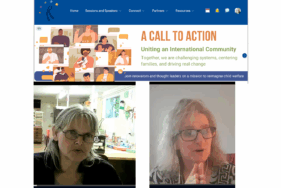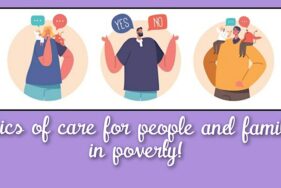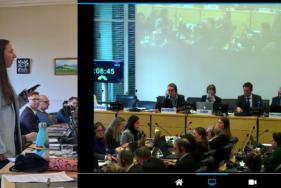The Right to Family Life
Our Right to Family Life project brings families in poverty together with academics and social work practitioners through a series of platforms for dialogue that reflect the needs and concerns of families in poverty while exploring innovative new ideas and proposals for change coming from those working in the child protection system. With the voices and thinking of families with experience of social service intervention at the fore, the project is based on three distinct but complimentary actions.
- A half-day anti-poverty-practice workshop, delivered with the active participation of parents with experience of social service intervention, examines how poverty affects families and social work practice and is aimed at newly-qualified social workers or final year social work students. The workshop interactively explores the multi-dimensional nature of poverty and encourages reflective practice as part of a positive dialogue with practitioners and students.
- Study groups on poverty, social work, and the right to family life bring together academics, social workers, parents and professionals in the social care and legal fields to discuss and debate key issues faced by social work. In covering topics such as the relationship between poverty and shame, the impact of material deprivation upon social work practice and the politics of recognition and respect, the format serves to broaden perspectives and deepen thinking using ATD Fourth World’s Merging of Knowledge approach.
- We also engage with the wider social work and legal fields through presentations at conferences, contributing to ongoing research, and having articles based on our work published by respected academic journals.
We run regular anti-poverty-aware-practice workshops at Royal Holloway, University of London; Birmingham University; Brunel University; and the University of Herfordshire.
Activists also spoke at several British Association of Social Workers’ events including the launch of their Anti-Poverty Practice Guide to which we had contributed. One social worker commented:
“It’s been an eye opener about how our position as social workers is viewed by service users. The power we possess can make or break them. What I’ll take with me from today’s session is not to necessarily go by a service user’s past experience to decide whether a child should be removed from home but rather try and see if I can work with that family to meet an achievable goal.”
Latest news
Call to Action to Change Child Welfare Conference 2025
– Above, Amanda Button and Lisa Merkel-Holguin By Aya Al-Anizi On 6 and 8 October 2025, ATD activists Pat Bailey (…) Read more
The ethics of care for working with people in poverty
On 20 February, a webinar organised by the Parents, Families and Allies Network (PFAN) and ATD Fourth World sparked conversations (…) Read more
UK Government admits problems with children’s social care
Above: Aurelia Drayak, 19, speaks for ATD at the United Nations. On 13-14 February 2025, four members of ATD Fourth (…) Read more





